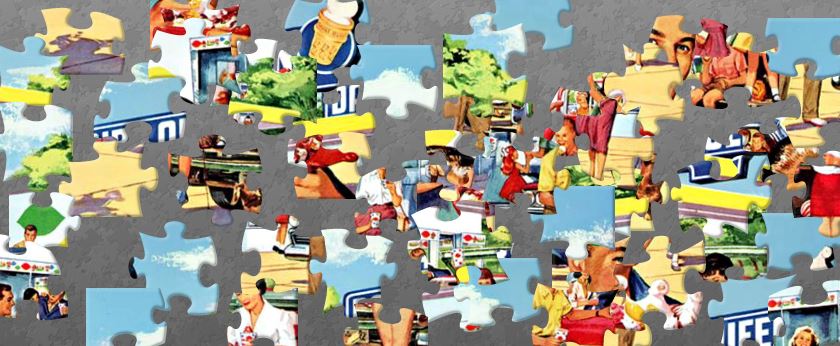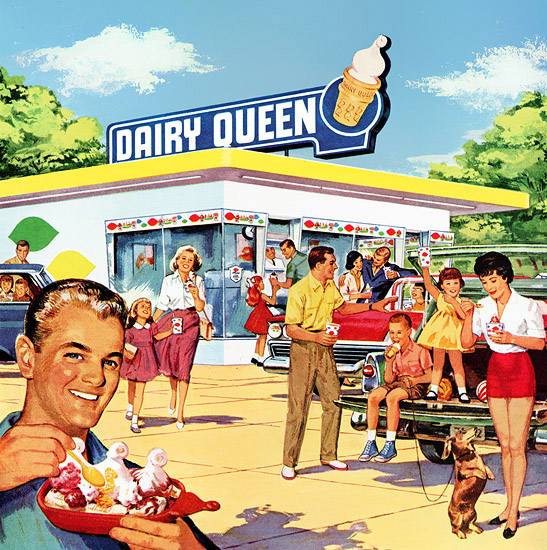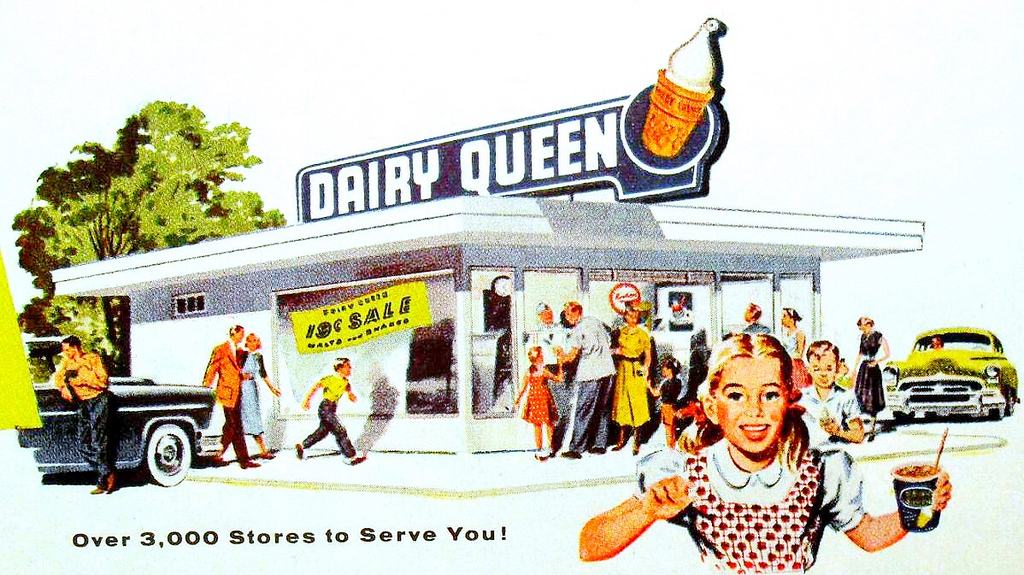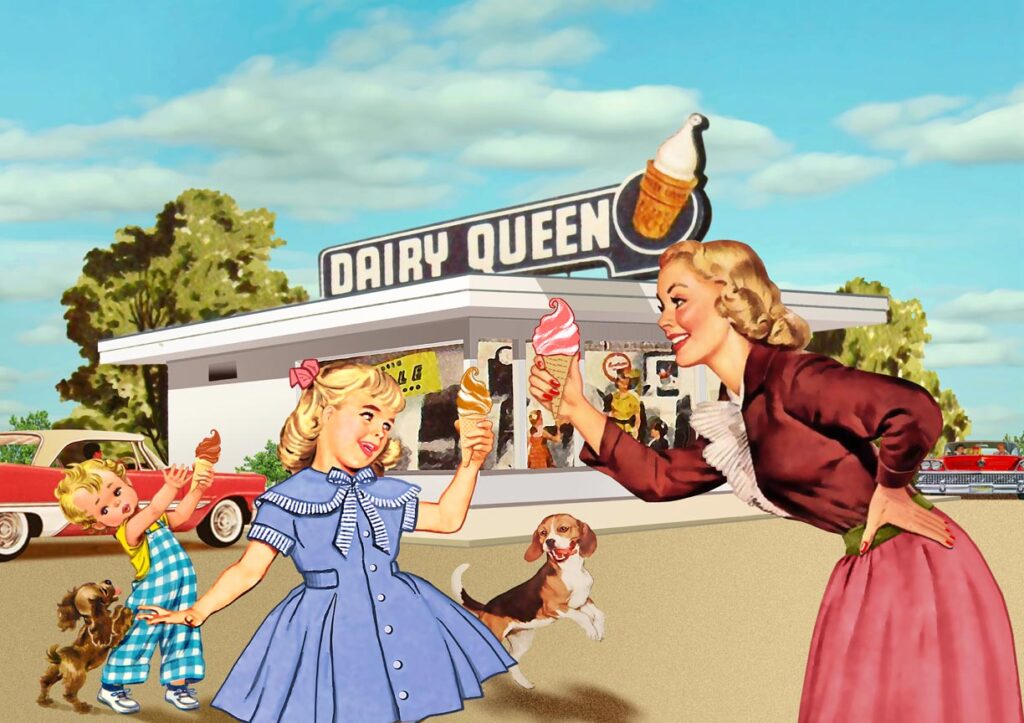
I like to do jigsaw puzzles, and I’m quite pleased to have found online sites that actually let me do them quite easily. Sure, it doesn’t match physically handling and sorting the pieces of a real puzzle, but it really does the job when I’m watching TV and don’t want to use up a lot of space. Plus there are thousands of puzzles in all kinds of categories to choose from.
Among my favorites are Norman Rockwell-esque pictures of mid-20th-century America (to include some actual Normal Rockwells). I like them for their historical perspectives, but many others like them because they bring back memories of a simpler time, and in some cases really strove to be advertisements for the “American Way.” What can be more wholesome than taking the family out to the drive-in for some ice cream? For me it was the tradition of going out for a banana split with my mother after every band concert in high school (and a girl on whom I had a crush worked there – I mean, how can you get any more apple-pie than that?).
So when an ad for a 1960s Dairy Queen caught my eye, I thought it would be fun to do. But as I pieced the puzzle together, a thought kept rolling through my mind.

“This picture is as white as the ice cream.”
I’m not trying to make a statement here about the evils of early-60s Dairy Queens. I’m just talking about the fact that every single person in that picture shared one noticeable trait: they were as mid-century middle-America white as they come. Maybe it was the demographics of the location – this could be an ad for a DQ in the middle of small-town Wisconsin.
But I’m sure that’s not it. The picture was from an ad depicting a certain aura to the DQ drive-in experience. It was targeted, yes. But even more so, it was an announcement that no one at the time gave a thought to telling us: “This is your American dream…a bunch of well-dressed white people all smiling over their DQ treats.” I can guarantee you that not one person painting that “picture” thought “hey, let’s put a black family in here.” I mean, this is exactly what mid-century America was, right? Everything was Happy Days (yeah, made in the 70s, but the point still holds) and Leave it to Beaver.

And so we have this disconnect: people pining for the “good-old days” and thinking back to good times at the DQ, but not seeing the actual people when they picture it. They see the experience. They see the feelings invoked by thinking of a simpler time. And so they give no thought to the fact that the “simpler time” to which they want to return had no room for black people. A time when the media and mindset thought nothing of it.
I’m not issuing a call for us to do anything about this. I’m not saying “boycott DQ” or “erase these pictures.” This is history. This is context. What I’m saying is take a look at the pictures. This is what people thought was the ideal at that time. No one blinked an eye at it then and even for decades after. We can’t sit here dumb and say it didn’t mean something, but understand what that “something” really was – not a hateful, hurtful, malicious, “I’m gonna make this picture and I’m not gonna put any black people in it because I hate black people,” but rather an underlying current of holding up the ideal of the times as a bunch of white people enjoying life.

Thankfully, we can consider how far we’ve come since then. I look forward to a time when people are not triggered by the fact that an advertisement is depicting “x” “y” or “z” groups – I think this is already the case for the most part – but rather that they simply see people doing and enjoying things.
There will always be targeted demographics – certain media will always attract certain audiences and so the sponsors of that media will consider the demographic of their audiences in their advertising. But I’m talking about including everyone not equally, but naturally – that is, to the point that we don’t even consider these things when we see them anymore. So instead of seeing the hashtag “#OscarsSoWhite,” we think it only natural to see people being recognized not for their race but for the worthiness of that recognition. It’s what Martin Luther King, Jr. was saying when he said, “I have a dream that my four children will one day live in a nation where they will not be judged by the color of their skin, but by the content of their character.” Have we lost that vision? Is it always going to be about our particular tribe? (Can I even use the term “tribe” without offending people?) Or can we come to a time where we simply value each other as people?
It’s a puzzle worth solving.
